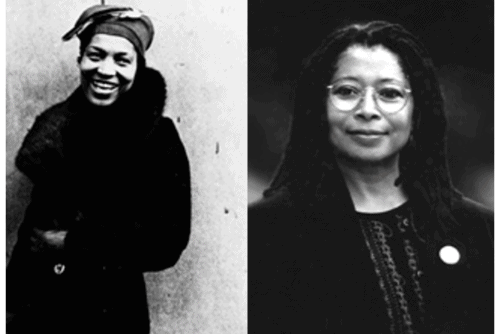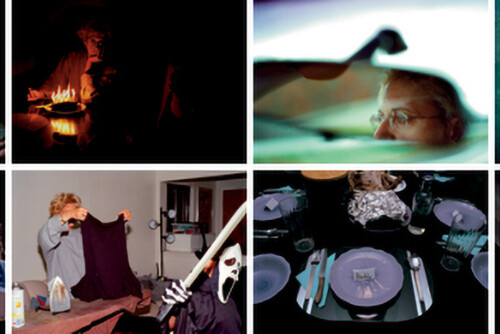The Other Closet
As the queer community has reached greater visibility, a considerable segment of our population—queers in recovery from addiction—has remained hidden from the whole. For decades, queer people have been congregating in church basements and YMCAs to offer support and healing to each other for their recovery from addiction. Queer-oriented Alcoholics Anonymous (AA), Narcotics Anonymous (NA), and scores of other 12-step groups are the most organized, but by no means the only recovery support networks for queer people across the country.
Marty Mann, an early recovery advocate who promoted public education about the disease of alcoholism and founded what is now the National Council on Alcohol and Drug Dependence, was a lesbian. She was also responsible for ushering many gay men and lesbians into AA in the 1940s and 1950s. “Mrs. Marty Mann” was “out” about being a woman in recovery (double stigma), but remained silent about her sexual orientation (triple stigma). This was partly because of the times, but also because being out about too many stigmatized areas of her life would have undermined her already compromised credibility as an activist. In our community now, many queers are willing to disclose their sexual orientation or gender variance, but not their recovery from addiction. The lives of far too many among us span both closets.
As early as 1970, gay activists in recovery began to challenge AA in the flurry of queer-positive activity that followed Stonewall, petitioning AA for the right to establish “special interests” gay AA groups. This piece of history, largely unknown to the overall queer community, preceded the 1973 removal of homosexuality as a mental disorder in the DSM-II by the American Psychological Association (APA). Advocates pioneered what was to become a current network of “Gay AA” meetings across the country, arguing that it was important to create a safe and openly identifiable recovery space in which queers could explore the nature of their addiction and sexuality in a supporting and understanding community of peers. This has resulted in a strong, sober queer community that is a subset of the larger community. It has also created an overall acceptance of queer experience in many mainstream factions of AA and 12-step culture in general.
Many queers today express discomfort with the notion of disclosing their recovery within the queer community. As in other oppressed communities in which substance use is a social norm, there is often a reverse stigma and harsh judgment placed on people in recovery who no longer share common activities that center around the use of substances. Further, oppressed communities tend to shy away from addressing addiction as a social problem in their specific communities, fearing that it will bring further negative attention and blame upon them by the dominant culture. Because of these variables, it is important for us to tease out the issue of addiction in our community from the separate but related issue of the “right to use,” and the historic role of substance use in subcultures promoting sexual liberation. Thoughtful dialogue can direct us to recovery solutions that include not only those who practice abstinence from substances as a means to generate their recovery from addiction, but also those who chose to use substances in a way that promotes informed choice, awareness, and acknowledgment of risks, while reducing harm.
Community Responses
Viewing addiction as a public health problem is an approach that is supported by many health care advocates. This approach could be facilitated if we could begin to draw comparisons with what we have learned through our experience with HIV/AIDS. We have had to overcome social ignorance and aggression concerning AIDS, much of it based on heterosexism and homophobia. We have had to fight for access to decent, affordable healthcare—and a host of other human services—that we have been continually denied. We have fought against the stigma and hollow moralizing that has promoted the lies that with HIV/AIDS we have gotten what we deserved and that we actually caused the disease through our own bad and immoral behavior. In order to fight back in the way that we have, we have had to challenge our own internalized homophobia and oppression, develop new ways of honoring queer lives (and queer deaths), and reexamine the manner in which a holistic, authentic, and inclusive queer community can be built. As a result, we have learned a tremendous amount about queer health, the infrastructure and delivery of queer healthcare, and the importance of valuing healthy queers lives as a community concern.
As we now face the sweeping challenge of methamphetamine use and addiction—as well as the related spiking rates of HIV infection—in many sectors of our community, there has been a tendency to once again moralize and blame the people that are suffering and in pain. Negative responses such as these are not only unhelpful, but also serve to undermine any approach that might shed light on the root causes of such a vast social problem. While many people use substances for pleasure and fun, a great many use them to nullify pain, to feel normal, or to feel socially or intimately connected with others. When we get deeper into addiction, the substances which served to deaden our pain stop working and we feel the pain more deeply, feel less than normal, and feel isolated and disconnected not only from our community, but from the entire world. The very substances that formerly made us feel so alive and vital now create their own level of pain and deaden our bodies, minds, emotions, and spirits.
Organizational Responses
One of the many ways that our community responded to HIV/AIDS was by building organizational infrastructure to provide our own healthcare. Our community organizations have responded to a range of health and social service needs, including HIV/AIDS, mental health disorders, problems with substance use, and addiction. We have often provided such response on shoestring budgets and with a largely volunteer workforce, especially during periods in which our advocacy for governmental or foundation funding has gone unheeded or ignored.
With such a rich legacy of what we have created, we have been slow or resistant to institute internal organizational policies that are consistent with what we advocate outside of our community. Attempts by advocates to get boards of queer organizations to adopt policies that restrict the beverage industry from corporate sponsorship have been met with indifference, hostility, or dismissal. First, there has been a lack of vision that it might be possible to hold public community events that are not plastered with banners that advertise liquor from companies that target our communities and exploit our vulnerabilities. The naysayers often argue that other corporate entities do not sponsor queer organizations and events with the same zeal as the alcohol industry. Although the issues are parallel, our community organizations continue to unquestionably accept corporate sponsorship from alcohol companies, even when it would be imprudent or a public embarrassment to accept tobacco sponsorship.
Queer recovery activists are not advocating a complete moratorium on the use of substances, but rather a more thoughtful, thorough, and ongoing community dialogue that elevates the importance of these issues and honors their complexity. Until we make room for a more informed conscience, we will relieve ourselves of all accountability by continuing to turn our collective back on addiction and recovery, dismissing them as not pertinent or pressing queer issues. Fortunately, some alternative community responses to addiction recovery have been created, notably in the form of substance-free community centers and spaces. We need more of these kinds of models as we move forward in creating recovery-friendly spaces that acknowledge and honor the recovery of many of our community members.
Addiction and Recovery: A Vital Part of the Queer Agenda
Just as our communities need to be aware of and accountable for substance use, addiction, and recovery in the lives of queers, so too must we begin to make a place for these issues and concerns as part of an overarching queer healthcare agenda.
As a wave of social and political conservatism recently swept across the country, queer healthcare issues that had not too long ago established a brief but tentative holding were all but forgotten in mainstream health care policies. In the addiction treatment field, which regards cultural competence as a core practice, issues of sexual orientation and gender identity have been relegated to mere footnotes, if mentioned at all. Despite our repeated efforts to train administrative and frontline staff in treatment agencies, organizational policies that are discriminatory or unwelcoming to queers prevail throughout all phases of addiction treatment.
While some addiction agencies provide queer-inclusive and queer-friendly treatment, far too many do not. Queers in treatment settings receive harassment from other clients and staff which they are blamed for provoking when they bring it to the attention of the administration. And queers are continually admonished for voicing issues of their queer lives; they are told that gay issues have nothing to do with their recovery and only serve to make the other clients and staff uncomfortable.
Queers who are successful in completing addiction treatment often return to their communities unsure of their footings and confused about how to find safe places and people who will support their recovery. Linking to new sober friendship networks and community spaces and engaging in activities that do not involve the use of substances are key elements in stabilizing their early recovery.
As we go about making a queer politics more inclusive of the experience of all queers, let us not forget that doing so will involve a commitment to supporting community responses to substance use, addiction, and recovery. If we approach this subject with a sense of our own power and authority, a complex understanding of the multiple reasons for substance use, and genuine solidarity between recreational drug users, nonusers, those struggling with addiction, and those who have achieved long-term recovery, we can only strengthen the broad and diverse community that we are.




